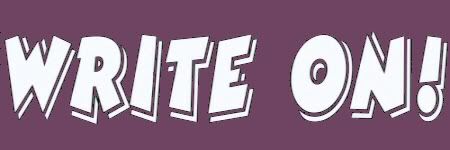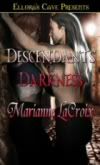
Friday, January 27, 2006 What do you want out of your fiction? Genre fiction is escapist entertainment. The books take you out of your current reality for a while, to someplace better/brighter/REALer. (In the way that reality in books is the distilled essence of external reality ... an abridged version containing only the good parts.) But what happens when you come back? Do you take a look around you, and think, "This is nowhere near as much fun as the place I go to when I read," and pop back into the next book? Or have you brought something back with you, that strengthens you for your daily life, so that you're able to try and move your current situation closer to the fictional situation you preferred? Mind, I'm not advocating books as thinly disguised primers for How To Live Your Life. But maybe, if you've lived through a character struggling against all odds to triumph, you'll be a little less likely to give up when faced with a daunting challenge. Maybe, if you identified with the heroine who'd all but given up on love who finally found her soul mate, you'll accept your friend's suggestion to fix you up with someone they know. Maybe it's as simple as, having seen the price of a life of constant adventure and excitement, you find contentment with your routine job and existence. The method may change from book to book, but I want all of the books I read to make me a better/stronger/happier person. I want the books I write to help make their readers better/stronger/happier people, in whatever slight way they may. That's what I want out of my fiction. What do you want?
Wednesday, January 25, 2006 The strong, warrior heroine has always been one of my favorite types of heroines to read. She jumps in and is ready to kick some butt beside her man at a moments notice. She's also very easy to write about. I seldom have to wonder what she'll do in a situation, because she's so assertive. I like writing about a woman who knows what she wants and is willing to go after it. But then, I have to admit that sometimes the emotional impact of an Innocent heroine does draw me into the story. I'm not necessarily talking about the heroine being a virgin. The innocent heroine I have in mind is the naive heroine, the inexperienced female, thrown into a situation she's never encountered before. Maybe she's unfamiliar with the hard reality of life. I know that sometimes these heroines can come off as much too sweet and much too naive, but once in a while they can grab my emotions and never let go. Then we have the crusader, another type that I love to read. She's so caught up in attaining her goal, fulfilling her quest, that she can sometimes miss what's right in front of her. It's her dedication to this cause that makes her admirable, but it also makes for a lot conflict in personal relationships. Now, I know there are many more types of heroines than I have listed. When I'm writing, my heroines end up a mixture of many character archetypes, maybe a warrior/ crusader, maybe a mixture of crusader and innocent. As a reader, some of my favorite heroines' characters have traits from each of the types I've listed. Readers, do you have a favorite type of heroine you like to read? Does a certain type of heroine just get on your nerves to the point that you'll stop reading the book? Tell me what you like about them and what you dislike. And writers, do you find you write about one type of heroine more than others? Do you find it easier to write about one type of heroine more than others? What type of heroines are the easiest for you to write?
Friday, January 20, 2006 So, if you're at a loss, you can pick your plot inspiration from many sources. You can turn to a legend, a myth, a fairy tale, a classic novel, a movie, a television show, or a song. (And yes, I know of works based on all of these things.) That will give you the WHAT, and then your job is simply to come up with the HOW and WHY. For example, I based my novella "The Tower" (in the New Concepts Publishing anthology SHIFTERS) on the Chris DeBurgh song of the same name. (Go read the lyrics...I'll wait.) The song established the set-up, of a lord hunting in the forest who accidentally shoots a shape-shifting woman. It gives the first turning point: Entranced by her beauty, he holds her captive until she will agree to marry him. The second turning point: When she recovers, she shape shifts and flies away. The resolution: Losing her means his death. While it works in a song, which is of necessity short (even though this one clocks in at over five minutes), there are gaping holes when you try to turn it into a story. The central question, of course, is why someone who is self-centered enough to think he had the right to kidnap and imprison someone to force her to marry him would be so devastated at her loss as to die of a broken heart. So, in my story, he is a conquering general, desperate to hold the castle and region he has just conquered, since if he does the king has promised to award the land to him and allow him to retire. The woman is not just any woman, but the guardian of the land, and to win her to his side will win over all of the people he's just conquered. Losing her means failing his king, which is never a good thing. Similarly, all the other references in the song have to be woven into the story. For example, "a terrible cry, brought thunder and lightning, rain falling down,Tears on the ground..." and "some sad lament she would sing" made me think that her voice holds magical power. So the general leaves soldiers guarding the tower, and returns to find that she has used her voice to influence them, and they are in the process of freeing her. He revamps the decaying tower with a new door and heavy lock, so that he is the only one capable of freeing her. Once the basic brush-strokes are in place, you have to fill in the details. In this case, why was an abandoned tower not torn down for the building stones? And why was it still in good enough condition to hold her in reasonable comfort? I came up with the idea that a local legend embued the stones of the tower with the power of fertility, and local people would go there to make love to ensure pregnancy. (A detail borrowed from my tour of Honolulu, where the tour guide mentioned the problems a certain supermarket had because their landscape rock was taken from a local holy site, and locals continued having sex on top of it.) Eventually, by filling in all the holes with WHY and HOW, you have a fully-fleshed plot. It's different from your source material, because you've put your own spin on it and stressed the things you thought were important with the theme. Often, your interpretation will change things so much that readers won't be able to recognize your story as being based on your source material unless you tell them. I won't tell if you won't. ;-) [Note: "The Tower" is a stand-alone novella in the world of the novels NOT QUITE CAMELOT and SHADOW PRINCE, released by Cerridwen Press.]
Tuesday, January 17, 2006 I've seen a trend among authors to give their characters unique names. I'm all for that! I've done it myself a few times. I have characters named J'Qhir (he's an alien), Invictus, Durak, Vincenz, Riviera, Jingle (a Christmas elf name, his given name is Alexander), Myghal, Quade, and Nicodemus. And that's just from the list of my heroes and heroines. Secondary characters include Jancy, Leviticus, and Seneslav. Unique names make your characters...well, unique. You're safe in that there aren't a gazillion other heroes or heroines out there with the same names. On the other hand, do we distance our characters from the readers with odd and unusual names that sometimes are barely pronounceable? One example: Myghal from my novella, "Must Be Magic". The hero is the Prince of Pixies. First, he had to have a masculine-sounding name. LOL After doing a little research on Pixies, I found one theory is that they originated in Cornwall, England. Other theories include that the word Pixies might originally refer to the Picts of Scotland, Pictish = Pixie. I finally decided to forget the research and make up my own Pixie folklore. LOL But while looking over a list of Cornish names, I chose Myghal, the Cornish equivalent of Michael. I thought it would be familiar enough. According to sources on the internet, it is pronounced Ma-HAIL, silent "g". It might be tough on the reader, but I really liked the unusual spelling. So, Readers, do you find unusual names unsettling? Or do you like them? Do they cause you to remember the story—and the author—more? Or not? And, Writers, what is the most unusual name you've given one of your heroes or heroines?
|












